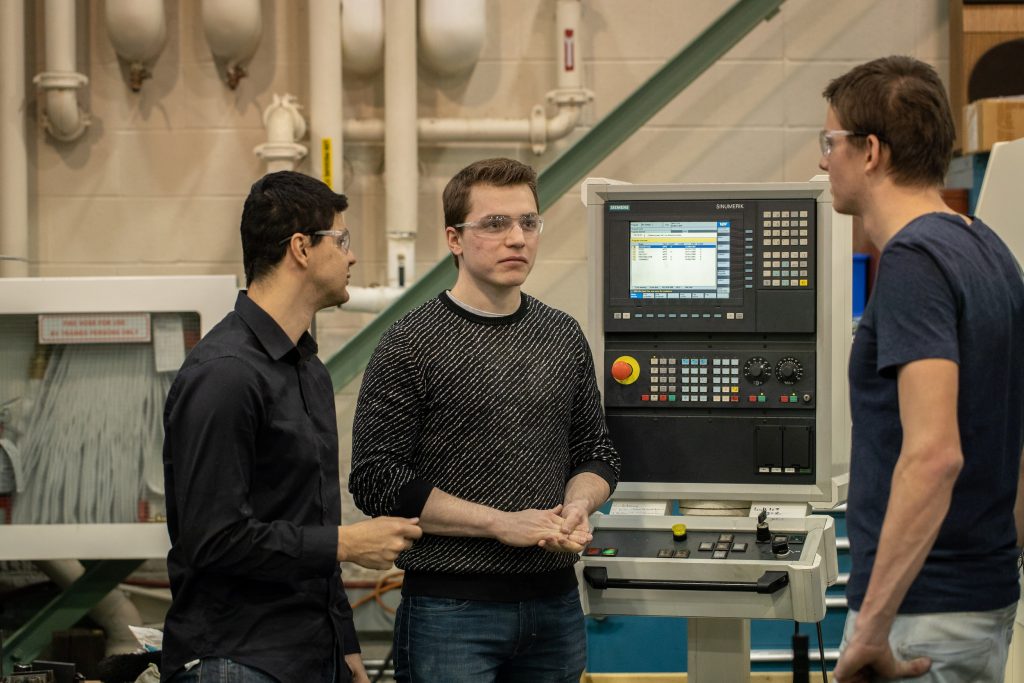Policy development for clean energy technology
McMaster University works closely with local, federal and international governments and organizations to support the development of clean energy and low-carbon technology policies. These are some examples of the work our experts perform on an annual basis.
Engineering researcher Jim Cotton is using waste heat as an example of how different partners can work together to develop a local policy for clean technology development and implementation. Through the ICE HARVEST project, Dr. Cotton is working with 30 municipalities and 19 industrial partners to pilot a system that uses heat recovered from industrial applications to re-insert into their own operations.
The ICE HARVEST project is also being used as a pilot to showcase the feasibility of energy sharing between different buildings at the McMaster Innovation Park, where a major renovation is to take place in the next few years. A set of key principles is being developed to ensure that we have a resilient system with minimized carbon impacts. This type of project will be crucial for the provincial government, as we try to tackle the issues on demand and frequency stabilization the current grid is undergoing.
McMaster University is also working with the provincial government to monitor specific components of the Ontario Power Generation’s Darlington Nuclear Generating station, in the hopes that this kind of partnership will positively impact the clean energy sector in Ontario.
McMaster is known for its nuclear capabilities; having an on-campus nuclear reactor used for medicinal research purposes, we have experts on the field that are looking to expand the impact beyond research.
McMaster welcomed leaders from the Ultra Safe Nuclear Corporation (UNSC), Global First Power (GFP) and Hyundai Engineering Corporation to talk about micro modular reactors (MMR) and how they fit in McMaster’s vision for low carbon technologies. The partnership will help explore the role MMRs will have in moving forward with low carbon, safe energy technologies that can potentially be applied anywhere in Canada. The work on small and micro modular reactors will clarify how this type of technology will fit under the overall energy policy of the province of Ontario and beyond. McMaster will continue working with external partners such as Westinghouse Electric Canada to explore collaborations and support the development of small and micro modular reactors.
Experts at McMaster University are paving a path for a new class of nuclear reactors that can potentially transform clean energy production – the Small Modular Reactor (SMR). This type of reactor functions like a larger one but at a fraction of the size, providing clean, safe, and reliable energy powered by nuclear fission. In 2020, the Canadian government released its SMR Action Plan, recognizing the potential benefits of SMRs. As part of the Plan, McMaster University will work to advance SMR research, education, and training at the university and explore the potential of hosting an SMR on- or off-campus.
McMaster University and the Technical University of Munich (TUM) have signed a Strategic Partnership Agreement to advance nuclear research and education at both institutions.
Researchers at McMaster have also received funding to support the development of international partnerships that will help pave the way for international research and policy development. Energy-related topics include underground hydrogen storage, improving rechargeable zinc-ion batteries for large scale energy storage, using aluminum as a carrier of Icelandic geothermal energy, introducing novel methods for solid-state-batteries used in hybrid and electric vehicles, and the use of biomass gasification for electricity generation and methanol production.

